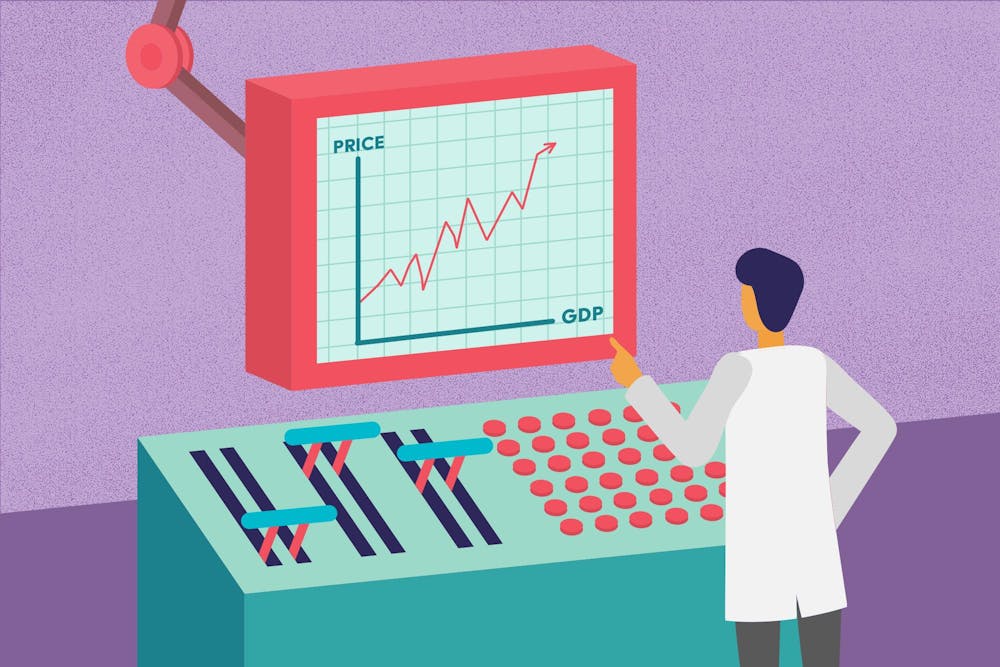This year, we witnessed the egregious pop culture-ification of U.S. politics. Kamala Harris somehow became the face of "Brat" summer , Biden and Trump were rumored to be rivalrous lovers, the list goes on. It is hard not to be invested in this excruciatingly problematic, yet wildly amusing political landscape.
Let’s face it — when we’re blessed with such entertaining content, the last thing any of us want to do is read about interest rates or the GDP. Economics is boring, it’s difficult, it’s jargon-heavy; learning it doesn’t compare to the other, flashier methods of political engagement.
But tragically, understanding economic policy is of utmost importance in this and every election season. It is an unspeakably necessary science for voters to learn. And contrary to everything we know about politics in 2024, it is rooted in cold, hard logic and data.
When you don’t understand various economic perspectives, you cannot adequately reason with anyone’s proposed solutions. Politicians can easily convince our economically illiterate populace that they’re working on issues that matter to you. However, since they don’t always tell you what their plans are or why their ideas will be effective, it is hard to actually hold them accountable in measurable ways.
Take food insecurity, for instance. The United States has a food stamp program called SNAP. In 2019, Hunger Free America conducted a survey which showed that over 70 percent of left-leaning Americans supported increased funding toward SNAP. However, there is plenty of research from international policy implementation that shows that an increase in universal income is the superior option when it comes to alleviating food insecurity. This was barely even a part of the discussion: because of a lack of economic literacy, people were not aware of the failings of SNAP.
So, be in the know. A little goes a long way. You don’t have to be an economics major or even take economics courses to understand the basics. Make sure you stay up to date on financial news or utilize free resources like Khan Academy to make learning complicated concepts more accessible. It doesn’t have to be much, but you do have to put in some effort.
Being educated means considering several policy options, evaluating their efficiency and efficacy using individual research, accounting for all of the negative consequences and making a truly informed decision. As voters, it is our primary task to be educated, and it is far from simple. Understanding economics is often more intellectually demanding than using politics to form moral judgements.
The thing is, when we don’t have the vocabulary to advocate for the ideas that actually work, we end up electing people who really don’t know what they’re talking about. When incompetent legislators are not held accountable, economic policy at large comes to a standstill.
Because we are inadequately educated, we are easy to manipulate and therefore it doesn’t take much to convince us that a certain policy proposition is a good one. At the end of the day, a lot of things — like SNAP — can be made to seem amazing. All it takes is a few well-made Instagram Reels, sometimes even just a tweet or two can do it.



